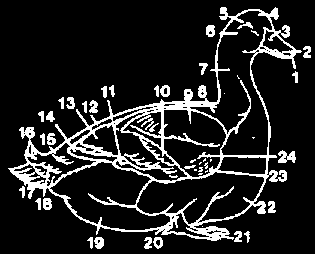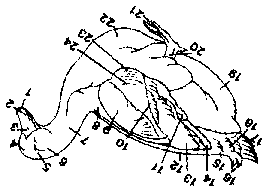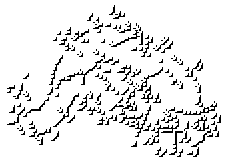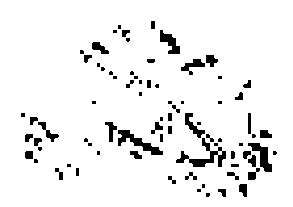Duck
Make sure, however, when adopting this plan, that the good dinner is really to be had at the end, or the disappointment is trying. I remember once a friend and I --- dear old Joe, it was. Ah! how we lose one another in life's mist. It must be eight years since I last saw Joseph Taboys. How pleasant it would be to meet his jovial face again, to clasp his strong hand, and to hear his cheery laugh once more! He owes me fourteen shillings, too.
Well, we were on a holiday together, and one morning we had breakfast early, and started for a tremendous long walk. We had ordered a duck for dinner over night. We said, "Get a big one, because we shall come home awfully hungry:" and, as we were going out, our landlady came up in great spirits. She said, "I have got you gentlemen a duck, if you like. If you get through that, you'll do well;" and she held up a bird about the size of a door-mat. We chuckled at the sight, and said we would try. We said it with self-conscious pride, like men who know their own power. Then we started.
We lost our way, of course. I always do in the country, and it does make me so wild, because it is no use asking direction of any of the people you meet. One might as well inquire of a lodging-house slavey the way to make beds, as expect a country bumpkin to know the road to the next village. You have to shout the question about three times, before the sound of your voice penetrates his skull. At the third time, he slowly raises his head, and stares blankly at you. You yell it at him then for a fourth time, and he repeats it after you. He ponders while you could count a couple of hundred, after which, speaking at the rate of three words a minute, he fancies you "couldn't do better than..." Here he catches sight of another idiot coming down the road, and bawls out to him the particulars, requesting his advice. The two then argue the case for a quarter of an hour or so, and finally agree that you had better go straight down the lane, round to the right, and cross by the third stile, and keep to the left by old Jimmy Milcher's cow-shed, and across the seven-acre field, and through the gate by Squire Grubbin's haystack, keeping the bridle path for a while, till you come opposite the hill where the windmill used to be --- but it's gone now --- and round to the right, leaving Stiggin's plantation behind you; and you say "Thank you," and go away with a splitting headache, but without the faintest notion of your way, the only clear idea you have on the subject being that somewhere or other there is a stile which has to be got over; and, at the next turn, vou come upon four stiles, all leading in different directions. We felt a strong temptation, at one point, to turn into a village inn we passed, and have a cheese and a few loaves between us; but we heroically restrained ourselves: we should enjoy the duck all the better for being famished. It seemed to want a lot of carving. I struggled with it for about five minutes without making the slightest impression, and then Joe, who had been eating potatoes, wanted to know if it wouldn't be better for someone to do the job that understood carving. I took no notice of his foolish remark, but attacked the bird again; and so vigorously this time, that the animal left the dish, and took refuge in the fender. We soon had it out of that though, and I was prepared to make another effort. But Joe was getting unpleasant. He said that if he had thought we were to have a game of blind hockey with the dinner, we would have got a bit of bread and cheese outside. It was a wicked sin to kill that drake. But there! there's no respect for old institutions in this country.
 If you wish to thoroughly enjoy your dinner, take a thirty-mile country walk after breakfast, and don't touch anything till you get back. How your eyes will glisten at sight of the white tablecloth and steaming dishes then! With what a sigh of content you will put down the empty beer tankard, and take up your knife and fork! And how comfortable you feel afterwards, as you push back your chair, light a cigar, and beam round upon everybody.
If you wish to thoroughly enjoy your dinner, take a thirty-mile country walk after breakfast, and don't touch anything till you get back. How your eyes will glisten at sight of the white tablecloth and steaming dishes then! With what a sigh of content you will put down the empty beer tankard, and take up your knife and fork! And how comfortable you feel afterwards, as you push back your chair, light a cigar, and beam round upon everybody. We had undergone this ordeal two or three times. We had tramped over fields. We had waded through brooks, and scrambled over hedges and walls. We had had a row as to whose fault it was that we had first lost our way. We had got thoroughly disagreeable, footsore, and weary. But, throughout it all, the hope of that duck kept us up. A fairy-like vision, it floated before our tired eyes, and drew us onward. The thought of it was as a trumpet call to the fainting. We talked of it, and cheered each other with our recollections of it. "Come along," we said, "the duck will be spoilt."
We had undergone this ordeal two or three times. We had tramped over fields. We had waded through brooks, and scrambled over hedges and walls. We had had a row as to whose fault it was that we had first lost our way. We had got thoroughly disagreeable, footsore, and weary. But, throughout it all, the hope of that duck kept us up. A fairy-like vision, it floated before our tired eyes, and drew us onward. The thought of it was as a trumpet call to the fainting. We talked of it, and cheered each other with our recollections of it. "Come along," we said, "the duck will be spoilt." We fancied we smelt it when we got into the town and did the last quarter of a mile in three minutes. We rushed upstairs, and washed ourselves, and changed our clothes, and came down, and pulled our chairs up to the table, and sat and rubbed our hands while the landlady removed the covers, when I seized the knife and fork and started to carve.
We fancied we smelt it when we got into the town and did the last quarter of a mile in three minutes. We rushed upstairs, and washed ourselves, and changed our clothes, and came down, and pulled our chairs up to the table, and sat and rubbed our hands while the landlady removed the covers, when I seized the knife and fork and started to carve. I was too exhausted to argue. I laid down the knife and fork with dignity, and took a side seat; and Joe went for the wretched creature. He worked away, in silence for a while, and then he muttered, "Damn the duck," and took his coat off.
We did break the thing up at length, with the aid of a chisel; but it was perfectly impossible to eat it, and we had to make a dinner off the vegetables and an apple tart. We tried a mouthful of the duck, but it was like eating india-rubber.
I was too exhausted to argue. I laid down the knife and fork with dignity, and took a side seat; and Joe went for the wretched creature. He worked away, in silence for a while, and then he muttered, "Damn the duck," and took his coat off.
We did break the thing up at length, with the aid of a chisel; but it was perfectly impossible to eat it, and we had to make a dinner off the vegetables and an apple tart. We tried a mouthful of the duck, but it was like eating india-rubber.